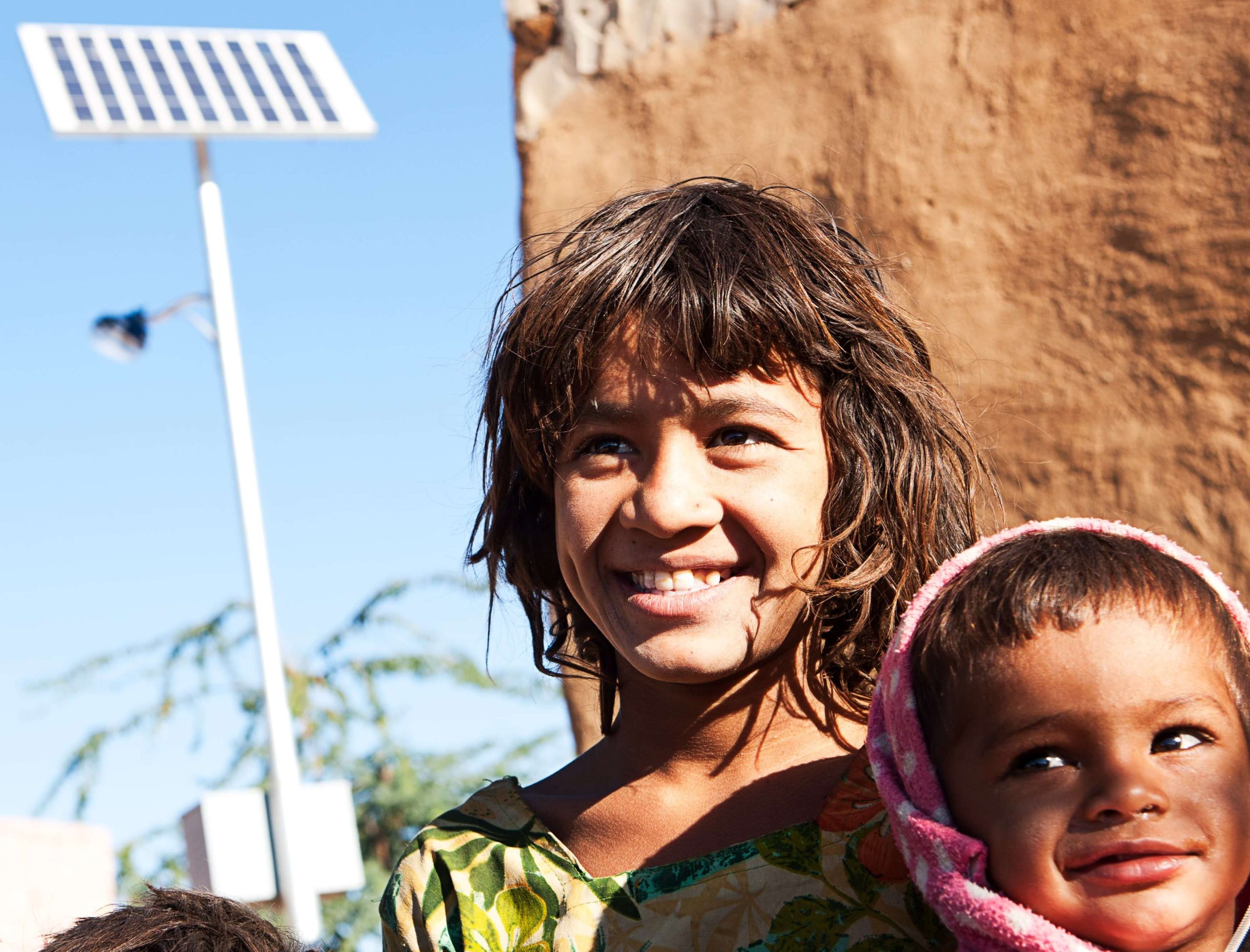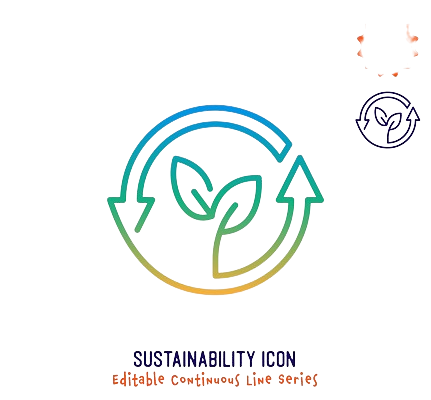Sustainable development through 360° inclusivity model
AVAADA operates like a social enterprise. We work for the overall development of the society. Our 360° Inclusivity Model, implemented across diverse locations in the country, provides clean energy and better opportunity in rural India through education and livelihood skilling with community participation.
We collaborate with the government, the district authorities, the village panchayats and other like-minded stakeholders across the country. We are working directly with thousands of villagers to provide them no-cost primary healthcare, clean water, quality education and employment opportunities. We believe in the philosophy to give back more than what we take. The world before us and the world after us will be different. This is our promise and we will achieve this in every project we do. We have a chalked a clear pathway with our 360° inclusivity model. There are clear milestones we set out to achieve. This model is based on five pillars. They are imparting education, enabling empowerment, protecting environment, promoting health care, lighting up rural India.
Our road map for the 360° inclusivity model
Providing a complete road map for the development of the community we work with. That’s what our 360° inclusivity model provides us with. At AVAADA, planning to improve the lives of the local community begins at an early stage in our project lifecycle. When we do the groundwork for the project, we also do on-ground research to know the concerns of the community. We delve into their problems, understand their limitations, their aspirations and then chart a clear map on how we can make a positive impact to their lives. Creating awareness, educating them and imparting skills as per the needs of the community, helps us to partner with them in their progress.
Imparting education. Uplifting human potential
Our comprehensive education program is helping to bring children back to school, by upgrading teaching and physical infrastructure.
Our aim is to ensure that children in villages receive similar education standards as those prevalent in developed urban locations. Our ‘Shiksha Karmi’ Program helps children better understand their lessons. Through a massive infrastructural refurbishment drive we helped community schools offer a more conducive learning environment to children. Library, recreation & information centres have been established. These have become a focal point where students meet to discuss their lessons and compete in various sports. Solar roof top system ensures electricity access and furniture made of recyclable wood helps children sit more comfortably in classrooms. These initiatives have served dual purpose – better infrastructure and favourable study environment. The Mid Day Meal program is a government’s initiative to encourage enrolment and regular school attendance. In schools which didn’t have adequate facilities, we have furnished and upgraded the kitchen, meeting cleanliness and hygiene standards. We have provided clean drinking water to students as well as teachers. Through operational toilets we have drawn children, especially young girls, back to classrooms.Enabling empowerment. Enhancing livelihoods
Under our empowerment program, men and women are finding new avenues to use their skills as an additional income source. We have been enabling women through skill-building courses for transforming opportunities into sustainable income sources. The Navkiran Tailoring & Stitching Centre in association with ‘Usha International’ conducts free professional classes for women on tailoring, knitting and embroidery. Across the country we have established centers in Madhya Pradesh, Uttar Pradesh, Rajasthan, TamilNadu and Manipur. The graduated trainees have been formed into Self Help Groups to evangelize livelihood opportunities.
It is essential that the trainees become independent in transforming opportunities into sustainable income sources. ‘DiwaliDiya Basket’ initiative was run as a pilot for helping trainees experience how plain household tasks could earn them an additional income. However after three years, it’s a self-sustaining annual initiative managed by the trainees themselves.
Existing income sources are being aided to be more sustainable and profitable. By connecting with regional KrishiVikas Kendra, we are helping farmers get oriented with efficient agricultural practices. Livestock is an important component in rural economy. Our door to door veterinary services are ensuring good health of villagers’ cattle.
Regional community members are offered job opportunities at our project sites. Multiple small businesses have grown around our project sites in villages.
Promoting health care. Valuing human lives
Through our no-cost medical center, much needed medical services are provided to the villagers. Multiple specialized and general awareness camps are organized to help villagers lead much healthier lives. Through consistent efforts instances of common diseases have come down. We have been organizing regular health check up camps and a number of medical camps - general & specialized to create awareness amongst the villagers. Medicare centres have been setup to offer OPD health services free of charge. Critical services such as immunization, Ante-natal & Post-natal care checkups, pathology and referral services have been made accessible.
Our sustainability program also helps address sanitation challenges in rural India. We have been building toilets across villages for underserved communities. Clean drinking water facilities, including RO plants have also been set up to meet drinking water needs of the rural communities.
Protecting environment. Promoting sustainability
Numerous tree plantations drives have resulted in environment consciousness among villagers as well as an increased green cover. At all our project sites we have been promoting environmental awareness within the community, organizing tree plantation programs, helping to augment water resources by rain water harvesting and encouraging everyone to conserve water.
- 50,000 saplings planted across the country
- A 10 acre belt now boasts of lush green plants
- 15 acre green/pasture land developed
- 1000 students across 5 schools have been motivated through lectures
- 5000 aloe vera plants planted under solar panel in an otherwise barren land patches
- More than 15,000 medicinal and fruit bearing plants now grow across our villages
- In response to our green initiative about 500 plants have been planted by 30 families
Lighting up rural India. Lighting up lives
Rural electrification - a new lease of life at Jayapur
We have been working towards bringing electricity in the lives of people in the remotest corners of the country. Jayapur, a tiny village tucked away in Varanasi district Uttar Pradesh was shrouded in darkness. A pioneering step transformed it all. With the installation of two solar plants, households received access to 12 hours of green and sustainable power. A rooftop unit on the school building powers light and fan fixtures as well as school computers. The children are now able to study in the evenings, without worrying about daylight. Families now sit together, dine and have more quality time with each other. For the elderly, who slept in the courtyard, access to the restroom has eased with the power supply. The village, which boasts of 4 to 5 poultry farms, used to suffer losses owing to lack of power has also been benefited.
Jayapur is a success story of 852 families, where lives transformed after gaining sustainable access to electricity.
Lighting up the mountain terrains - Lankarchey Brok & Sumdo
We undertook the electrification of two villages in the northern frontier of India. One, located at a height of over 14,500 feet and 35 km from Kargil, Lankarchey Brok, a village with 30 households; and the other a village named Sumdo located 80 kms from Leh.
At Lankarchey Brok, we installed 6 DC solar microgrids of 250W capacity in less than 2 days, lighting up all the homes in the village. This is the first village in Kargil to be electrified under the DC Micro Grid system. Electricity has changed the lives of residents dramatically. The homes are lit and families now eat dinner together, children are able to study longer hours, women are able to cook without using kerosene lamps and people do not need to rush home soon after dusk.
At Sumdo, 2 DC solar microgrids of 250 Watts capacity was installed in just one day.Today, this 700-year old Buddhist village with a population of 170 individuals is equipped with lights. After combating darkness for years, simple lights have brought about a profound change in their lives of the residents here. They now have more hours to go about their daily chores and children can study longer hours. It is now safer to walk out to the toilets and stores in the nights.
Copyright © 2022, Avaada, All rights reserved. | Privacy Policy



